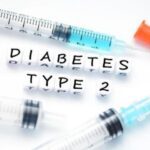An average Indian consumes about 20 kilos of sugar
New Delhi, September 03 2018: Estimates suggest that an average Indian consumes about 20 kilos of sugar a year! What exacerbates the situation is that most people are unaware why sugar is not good and that it is highly
addictive. One of the most common lifestyle ailments, type 2 diabetes, is caused by overconsumption of sugar. In individuals who regularly consume too much sugar, the pancreas produces too much insulin and the body’s cells
develop insulin resistance. This means that the glucose cannot easily be stored in the body’s cells, thus causing an excess of sugar in the bloodstream.
Globally, India has the second highest number of adults with type 2 diabetes next to China. The number of people suffering from type 2 diabetes in India is likely to double by 2045 from the current around 72 million to
151 million.
Speaking about this, *Padma Shri Awardee, Dr KK Aggarwal, President, HCFI*, said, “When we eat sugar, the brain produces large amounts of dopamine, or the “feel good” hormone. Most of the processed foods available in the market are spiked with sugar tempting us to consume it in various forms such as ketchup, yogurt, pastries, and the like. Sugar overconsumption causes the brain to release too much of dopamine, making parts of it insensitive. Over time, to feel good, our sugar consumption also increases. However, this good feeling lasts only for about 15 to 40 minutes and is inevitably followed by a crash. It is, therefore, a vicious cycle of intense cravings that a lot of people fight throughout the day. Sugar overconsumption is also related to neurological problems such as
depression, anxiety, dementia and even Alzheimer’s. It impairs memory and learning by literally slowing down the brain.”
The Food Safety and Standards Authority of India (FSSAI) defines three categories of sugar: Natural (built into food structure such as that in fruits and vegetables); Added (sugars and syrups added to foods and drinks during processing and preparation) and Free (both added sugars and those naturally present in honey, syrups, fruit juices and fruit concentrates).
Adding further, *Dr Aggarwal, who is also the Group Editor-in-Chief of IJCP*, said, “White sugar is a slow poison. Refined white sugar is also damaging to the digestive system, particularly for those who have difficulty digesting carbohydrates. It increases the effects of hormonal imbalance in women leading to androgynous manifestations like facial hair and in rare cases, ovarian dysfunction. In ancient times, people in India used to consume either sugarcane juice, jaggery or brown sugar (*khand*). There is no mention of use of refined white sugar. Both jaggery and brown sugar are safe.”
The 25th MTNL Perfect Health Mela 2018 to be held between 24th and 28th October will have health checkup camps where people can get their blood sugar levels checked. They will also find some interesting resources to increase their knowledge about how to prevent diabetes.
Some tips from HCFI :
- Avoid high fructose corn syrup. Watch out for this ingredient in labels.
- Use natural sweeteners like sugarcane, honey or jaggery.
- Eat several small meals a day, rather than three large meals. By eating little portions spread throughout the day, you’ll feel more satiated and be less inclined to consume unhealthy sweets.
- Limit alcohol intake as it contains hidden sugar.
- Restrict bread and bread products as much as you can, especially those containing wheat. Wheat has a higher glycemic index than table sugar.
- Avoid white rice and maida as much as possible.






